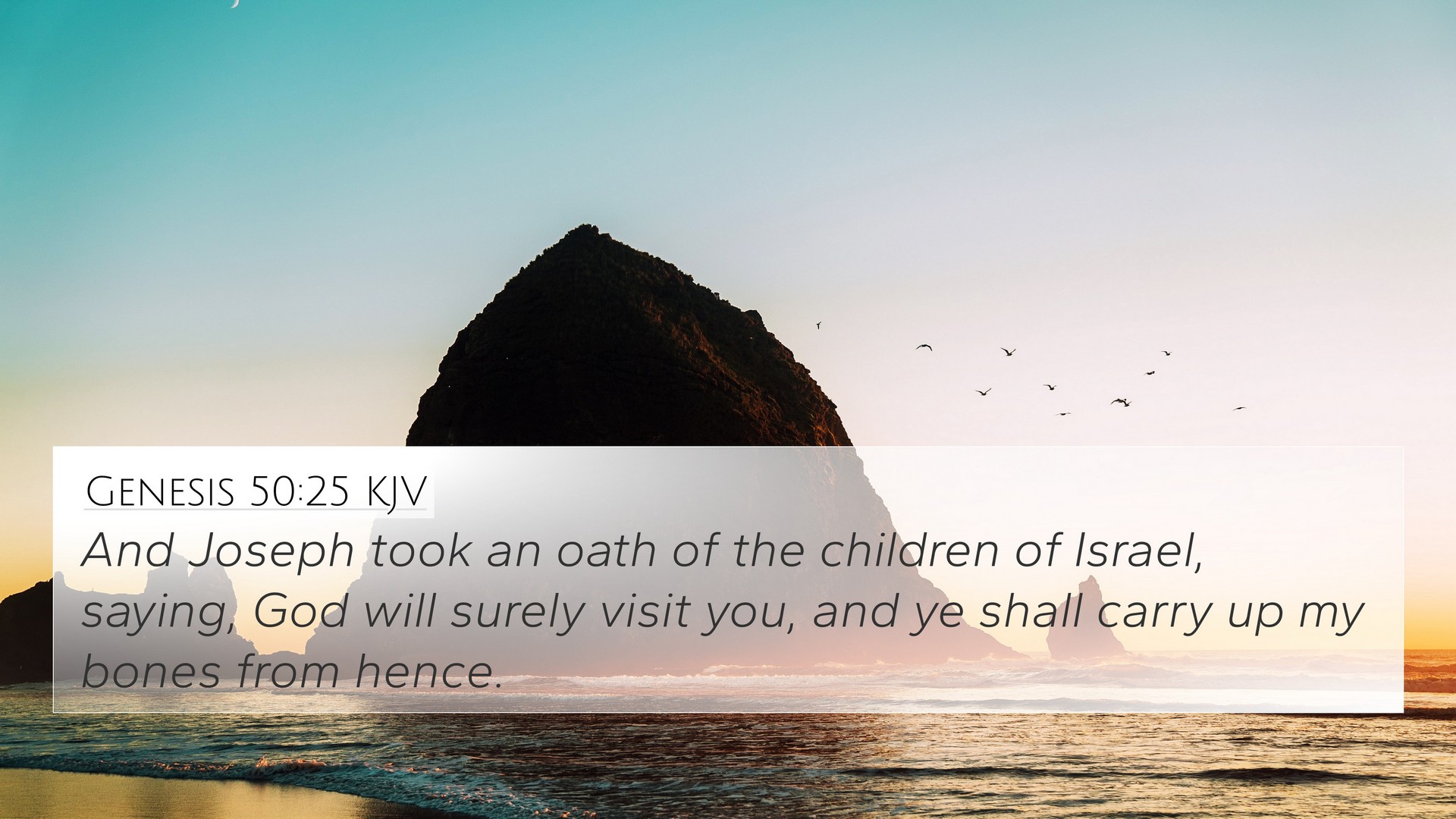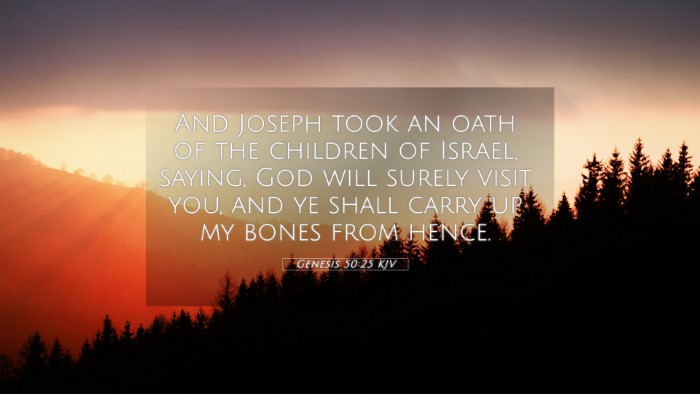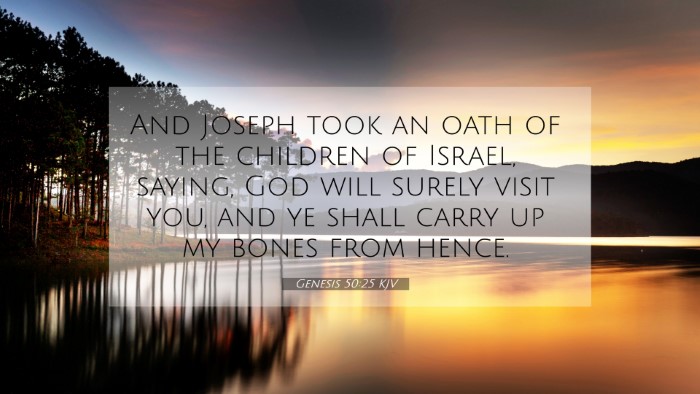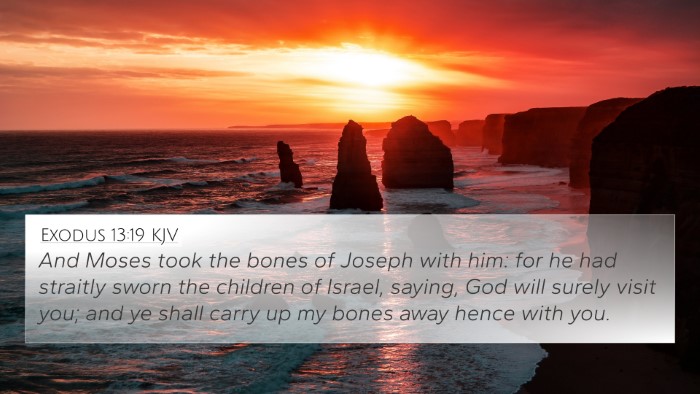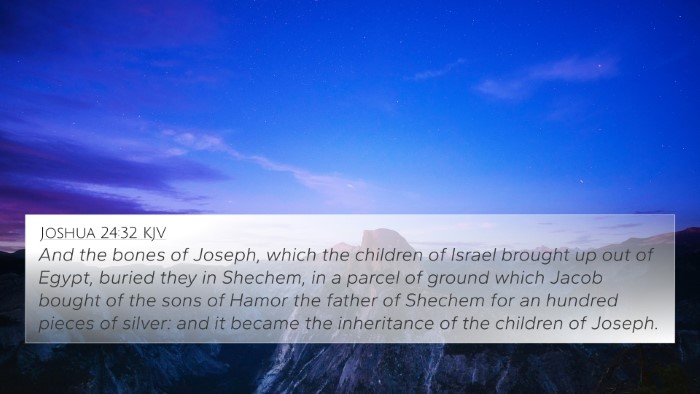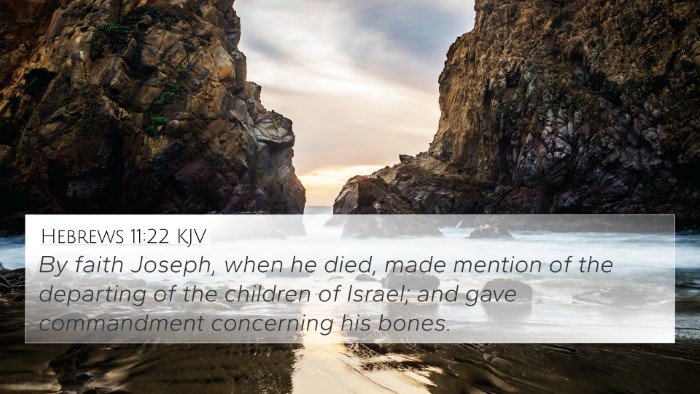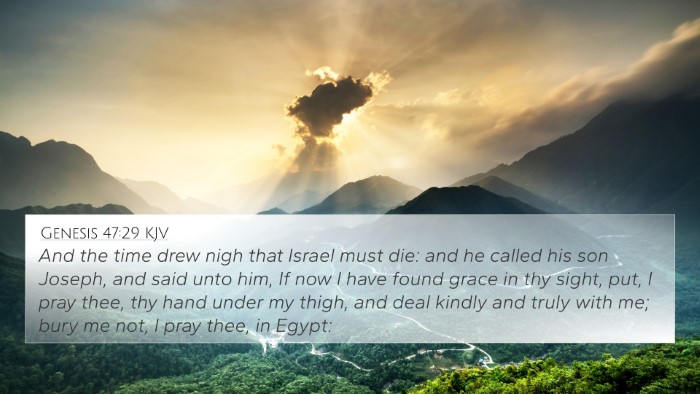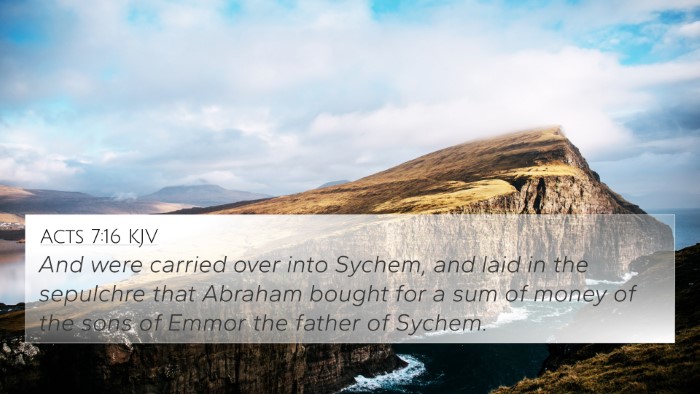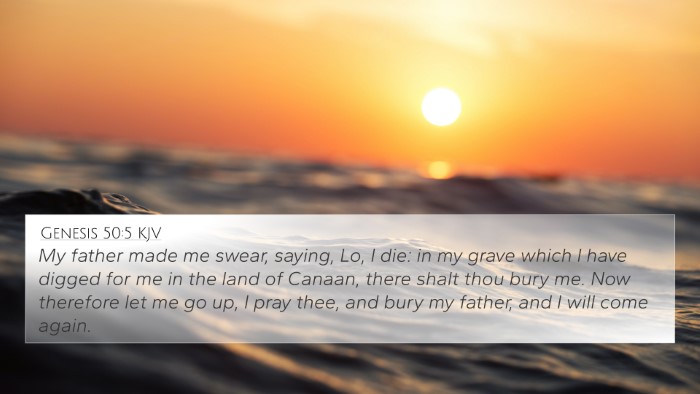Understanding Genesis 50:25
Genesis 50:25 reads:
“And Joseph took an oath of the children of Israel, saying, God will surely visit you, and ye shall carry up my bones from hence.”
This verse Capstones the conclusion of the Book of Genesis, encapsulating the themes of hope, promise, and the enduring faith of the people of Israel. Let us explore the layered meanings arising from this verse through insights gathered from public domain commentaries.
Contextual Analysis
The setting of this verse comes at the end of Jacob's story and the beginning of Israel's sojourn in Egypt. Joseph, having risen to prominence, continues to reflect on his family's future. His concern for his burial manifests a significant theological truth.
Insights from Commentary
Commentators like Matthew Henry, Albert Barnes, and Adam Clarke offer profound insights:
-
Matthew Henry: Henry emphasizes God’s providence not just in Joseph's life but in the lives of the subsequent generations. The oath taken by Joseph indicates a deep faith in God's promise that one day, the Israelites would inherit the land promised to Abraham, Isaac, and Jacob.
-
Albert Barnes: Barnes highlights the spiritual significance of Joseph's request. His insistence on transporting his bones reflects a longing to be part of the covenant land. It shows a belief in God’s promises transcending his lifetime and geographical constraints.
-
Adam Clarke: Clarke notes that Joseph's concern for his bones signifies the importance of bodily resurrection and the future fulfillment of God’s promises. He draws parallels to the exodus, indicating that Joseph’s prophecy would be fulfilled when Israel leaves Egypt.
Theological Reflections
This verse serves as a reminder of hope and the continuity of God’s promises. The act of taking an oath signifies a covenant, reflecting a theme recurrent throughout the scriptures: God’s faithfulness to His people. Joseph’s request involves two significant elements:
- The Assurance of God's Care: Joseph’s declaration that God will visit the Israelites ensures that they will not be forsaken in Egypt.
- The Expectation of Return: His command to carry his bones signifies the future exodus and the restoration of the covenant promise.
Cross-References
Genesis 50:25 interrelates with several scripture passages:
- Exodus 13:19: “And Moses took the bones of Joseph with him; for he had straightly sworn the children of Israel, saying, God will surely visit you; and ye shall carry up my bones away hence with you.”
- Hebrews 11:22: “By faith Joseph, when he died, made mention of the departing of the children of Israel; and gave commandment concerning his bones.”
- Genesis 15:13-14: God’s prophecy of Israel’s slavery in Egypt and eventual deliverance.
- Genesis 48:21: Jacob's prophecy regarding going to Egypt and coming back to the Promised Land.
- Exodus 3:16-17: The promise of deliverance for the Israelites from Egyptian bondage.
- Joshua 24:32: The fulfillment of Joseph's request, where his bones are buried in Shechem.
- Isaiah 46:4: God’s assurance of His presence and help throughout life.
Connections between Bible verses
This verse lays foundational thoughts that resonate throughout scripture. The connections include:
- Linking Biblical texts: Joseph’s faith and assurance connect explicitly with the broader narrative of God's promises, stretching from Genesis through to the New Testament revelations.
- Bible verses that relate to each other: The theme of resurrection and hope echoes in other scriptural contexts, such as Romans 8:11.
- Comparative Bible verse analysis: Analyzing Joseph's story alongside that of Moses reveals God's continuous unfolding plan for His people.
Thematic Bible Verse Connections
Joseph's appeal and the ensuing events open discussions about key biblical themes such as:
- Faithfulness of God: His promise and provision despite circumstances.
- Covenant and restoration: The belief in returning to the land promised to their forefathers.
- Resurrection and eternal hope: The physical carrying of Joseph's bones symbolizes the anticipation of life beyond the grave.
Conclusion
Genesis 50:25 serves as a profound testament to the intertwining of faith, promise, and the hope for restoration. In a deeper biblical study, employing tools for Bible cross-referencing like a concordance or Bible reference resources, scholars can delve deeper into connecting various scripture themes. This verse not only offers insights into Joseph’s life but invites believers to reflect on God’s consistent faithfulness through generations.
Further Study
To fully harness the richness of inter-Biblical dialogue, one may explore:
- How to find cross-references in the Bible: Utilizing Bible study tools can assist in uncovering links across both Testaments and within various books.
- Identifying connections: A detailed cross-reference between the Old and New Testament can yield deeper understanding of themes like redemption.
- Interpreting Biblical themes through cross-references: This analytical method reveals layers of meaning inherent within scriptural narratives.
